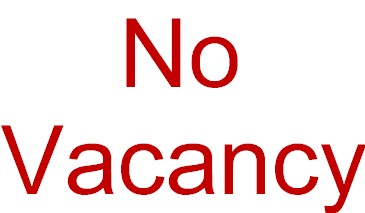Introduction
This post is the fortieth part of a ramble-rant about the software business. The current posts in this series can be found on the series landing page.
This post is about winning (no really).
NASCAR
I like watching NASCAR races. On the surface, a race looks like a bunch of folks driving fast on a circuitous course. But there’s much more to it than that. There’s engineering and strategy and frankly, a little luck. A NASCAR race is a lot like life when you look beneath the surface.
Forty-three cars start the race, one wins. If you do the math, you’ll realize that 42 cars do not win. The ratio of winners:losers is 1:42. A NASCAR race is an engine of loss. Why? It generates way more losers than winners. Does that make it any less thrilling to watch? Not at all. Take a look at this years’ schedule – there are 34 races slated over a 9-month season. One of the things that offsets the ratio is frequency.
Frequency helps because even though there are more losers than winners each week, there are a lot of weeks. Constraints come into play as well; as NASCAR has strict rules about the cars. Constraints and frequency mitigate the winners:losers ratio.
The inverse also holds: Events with more losers than winners that occur infrequently with indefinite or shifting constraints fare worst of all. They also limit the growth of any community with which they’re associated. I prefer the adjective “organic” for community, but buzzing communities often experience different growth characteristics. Some have more in common with a nuclear reaction than my garden. Loser-laden events in these communities are like dropping the control rods into a reactor, or blocking the rain and light from reaching my garden.
Solution (and Anti-Solution)
“So Andy, what’s the answer?” I hear you asking. I’m glad you asked! Create events with more winners than losers. Optimally, create events in which no one loses and everyone wins.
“How?” Another excellent question! First, we have to redefine winning. Winning has long been associated with not-losing. Some have confused the two. In fact, it’s a remarkably subtle shift to measure oneself by counting those behind you. This leads to an incredibly negative spiral in which some believe they are winning – indeed, can only win – if others are losing. Rather than build up, they tear down. If the goal is to win, after all, someone else must lose. Right?
NO!
Community is not a zero-sum game. Neither is business. It’s possible to create – period. Create what? Whuffie, reputation, value – you name it. You do not have to achieve whuffie, reputation, or value by taking it from someone else – it can be generated. Here’s a simple test to determine the direction of your spiral: Which way are you looking? If you’re measuring yourself by all the people behind you, you’ve fallen into this subtle trap. If you’re measuring yourself by being better, helping others, learning more, sucking less every day; you’re facing the right direction.
Back to your question of how: one example is…
Games
Online gaming, in its current form, is wildly popular. There are contests with others, to be sure; but success in these contests is driven by – and drives – an internal competition for higher levels. Competing brings higher levels. Achieving higher levels means the player is better equipped to compete. It’s a positive spiral built on self-improvement. Some games even award points towards levels when you help someone else improve their points or level. Contrast this with a 1/43 chance of winning, and you start to get the picture.

Increase the Odds
The incorrect response is the old response: “Sorry. Try again next year!” It’s the community equivalent of a No Vacancy sign outside the Old Boys Club. It’s harder to think up ways for more folks to win, but I believe that’s only because we’re in the habit of creating events and opportunities where a few win. I believe this kind of thinking is so 1998. There are ways to increase the odds of participation and winning, though. One good example is SQL Saturday.
In the SQL Server Community, SQL Saturday has provided opportunities for those interested to present their ideas in front of an audience eager to learn more. SQL Saturday increases the odds of winning by providing more opportunities to present. It’s such an awesome idea that you likely would be shocked to learn who initially opposed it and why. It’s not important who tried to kill the idea, but it is important – and an example – of the effects of 1998-era thinking in the current era.
Conclusion
Creating business opportunities where everyone wins is not only possible, I believe it’s a great idea. My business partner Brian Moran (@briancmoran) and I are working diligently to implement them into our latest venture. We’re going to be writing more about applying Community ideas to business soon.
:{>

Suck Less. My goal every day 🙂